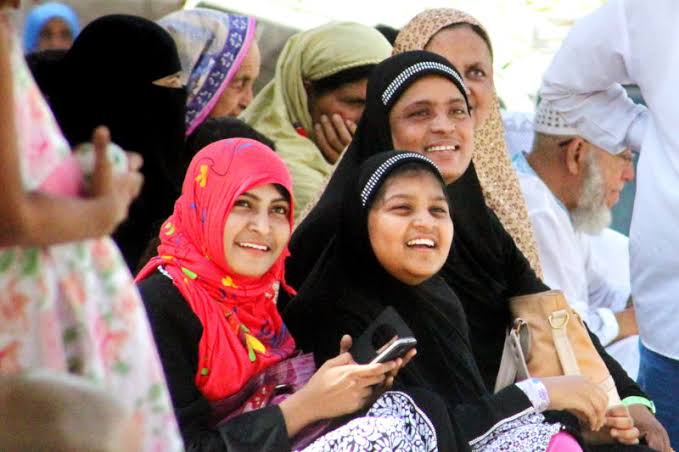In August 2017, the Supreme Court of India struck down the “triple talaq”—the practice whereby a Muslim man can instantaneously divorce his wife just by saying “divorce” three times. Widely regarded as a significant step forward for Muslim women in India, the decision culminated in the outlawing of the triple talaq with the passing of the Muslim Women (Protection of Rights on Marriage) Bill in July 2019.
This hard-won outcome is the result of decades of work by many Muslim women in India, but none more so than Hasina Khan, founder of the Bebaak Collective, a national umbrella body of Muslim women’s rights groups.
Limited Opportunities for Muslim Women in India
Outside and beyond the courts, despite vociferous opposition, this case brought the conversations on women’s rights in India into mainstream public debate. The focus of her life’s work – 90 million Muslim women in India – remain among the least literate, most disadvantaged, poorest and least represented within India’s population.
They have limited opportunities for personal independence and have minimal access to resources. They do not have any rights over their matrimonial or natal homes. This status is reinforced by laws, such as the Muslim Women’s Bill (1986), which subordinates the rights of Muslim women to the demands of community identity, denying them constitutional rights as Indian citizens; and the Muslim Personal Law, which controls all aspects of the personal lives of Muslim women in India (until recently, including through the triple talaq provision).

As well as combating fundamentalism in the Muslim community, Khan was involved in working to end and resist communal violence in the 1992–1993 riots in Mumbai in which around 700 people died following the destruction by Hindu nationalist
organizations of the Babri Masjid Mosque in the city of Ayodhya, Uttar Pradesh State. Standing up to extremist nationalist views and actions has been another focus of Khan’s life and work.
Journey from Hardship to Leadership
From humble beginnings to national influence Khan’s leadership journey began in a Muslim-dominated ghetto in Bhendi Bazaar, Mumbai, where most families are staunchly religious and conservative. For women in these poverty-stricken families, their world begins and ends within the immediate community. After her father gambled away the family’s money, Khan’s mother worked as a maid and seamstress to send her children to school.
Life changed for her when her brother went to work in a Gulf State. With the additional income, she could continue school, even though her sisters had by then dropped out. When these resources were lost after her brother’s return, Khan supported her education by tutoring children and seeking donations, discounts and free books.
In the meantime, a catalytic opportunity that shaped her future stood across the street from the family home. This was the headquarters of the Awaaz-e-Niswan, the first Muslim women’s group to challenge the Muslim Personal Law and the organization in which Khan would one day become an active member. The organization’s head at that time, Shehnaaz Shaikh, became Khan’s mentor and her guide in life.
Working with Awaaz-e-Niswaan beginning in 1985, Khan also became aware of issues that influence the lives of women in general and Muslim women in particular. The local religious court unsuccessfully tried to persuade her family to stop her from going to work.
Through her role in Awaaz-e-Niswaan, Khan earned a reputation as a problem-solver and organizer in her community. Her father and community leaders came to see her point of view. The organization became a force within Indian civil society, campaigning for Muslim women in India and running education, literacy, legal service and livelihood programmes for young women in Mumbai and beyond.
Building on this experience, Hasina Khan founded the Bebaak Collective in 2016. The coalition is developing links and collaboration with counterparts in Bangladesh, Pakistan and Sri Lanka as well as with the Minority Rights Group and Women Living Under Muslim Law in the UK.
A significant factor in the success of Awaaze-Niswaan and now Bebaak has been a broad and participatory approach to organizing and advocacy, a reflection of Khan’s inclusive and open leadership style. “Women should represent their own interests rather than allow political and religious leaders to speak for them,” she told a journalist.
Building on the success of the triple talaq campaign, a core priority for Khan and the Bebaak Collective when looking at the future role of government policy and legislation is the abolition of all discriminatory personal laws. “Personal laws should focus on protection of personal rights rather than discriminate and should recognize marginalized groups within a community, in line with India’s constitutional values of equality, pluralism and secularism.”
This article is from a new series on inspirational women leaders for the SDGs. Hasina Khan has worked tirelessly for the rights of Muslim women in India, and the UK with a special focus on SDG 5.

